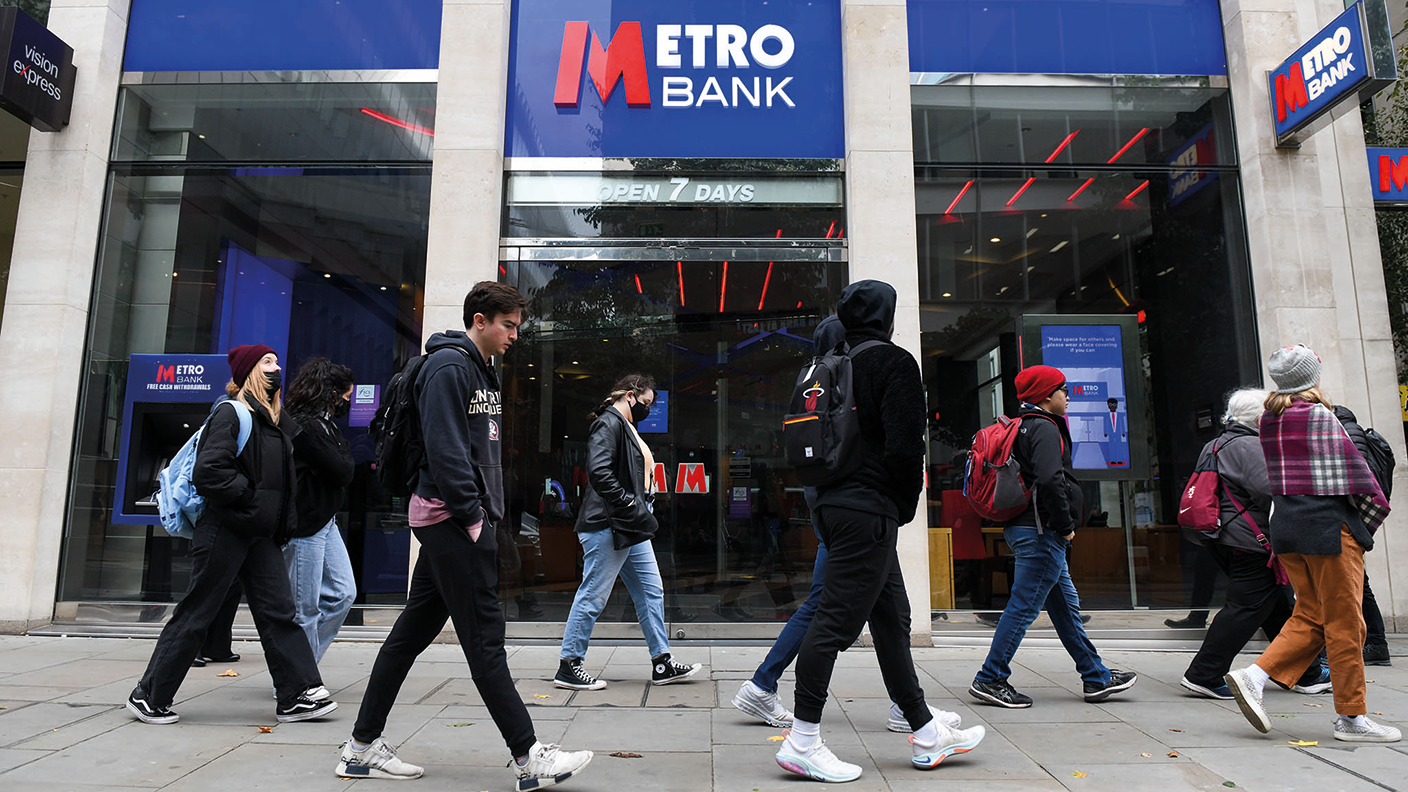Private equity – the new kings of Wall Street
The private equity sector has tripled in size over the last decade and now manages roughly $10trn of assets.

Get the latest financial news, insights and expert analysis from our award-winning MoneyWeek team, to help you understand what really matters when it comes to your finances.
You are now subscribed
Your newsletter sign-up was successful
Want to add more newsletters?

Twice daily
MoneyWeek
Get the latest financial news, insights and expert analysis from our award-winning MoneyWeek team, to help you understand what really matters when it comes to your finances.

Four times a week
Look After My Bills
Sign up to our free money-saving newsletter, filled with the latest news and expert advice to help you find the best tips and deals for managing your bills. Start saving today!
Top private equity firms are “the new kings of Wall Street”, says The Economist. Private equity refers to investments that are not listed on public markets. It usually makes the headlines when private equity firms buy a listed company and take it private – such as supermarket Morrisons’ £7bn sale to Clayton, Dubilier & Rice last October.
The sector has tripled in size over the last decade and now manages roughly $10trn of assets (about 10% of total assets globally). But firms that once focused on leveraged buyouts, such as Morrisons, “now look just as keenly for opportunities in private debt, real assets such as property and infrastructure”. In 2010 buyouts accounted for 80% of business at KKR, one of the leading private equity groups, but today that figure is less than half.
Not everybody is impressed. “In some parts the private equity market may be like a Ponzi scheme,” says Vincent Mortier of Amundi, Europe’s biggest asset manager. “The vast majority of deals currently are being done between private equity firms. One private equity firm will sell to another, which is happy to pay a high price as they have attracted a lot of investors… Eventually there will be casualties, but that might not be for three, four or five years.”
MoneyWeek
Subscribe to MoneyWeek today and get your first six magazine issues absolutely FREE

Sign up to Money Morning
Don't miss the latest investment and personal finances news, market analysis, plus money-saving tips with our free twice-daily newsletter
Don't miss the latest investment and personal finances news, market analysis, plus money-saving tips with our free twice-daily newsletter
Mortier is correct that private equity firms have been paying steep prices for acquisitions, says Shuli Ren on Bloomberg. But in that they are no different from public market investors. And while two-thirds of sales by private equity firms were to other private equity firms in the first quarter, the value of such deals – $43bn so far this year – “is by no means extraordinary by historical standards”. Maybe traditional asset managers such as Amundi are envious of the higher returns generated by private equity over the past decade
Increasing interest
The world’s wealthy have noticed. A UBS survey of 221 family offices that oversee $493bn in assets finds that they increased direct and indirect portfolio allocations to private equity to 21% last year, compared with 17% a year before. The increase comes at the expense of fixed income investments, such as bonds (down from 13% to 11%), while 24% of assets were held in public equity investments and 12% in real estate.
Big institutional investors, such as pension funds and sovereign wealth funds, have also moved in, says Miriam Gottfried in The Wall Street Journal, investing nearly $1.3trn in private markets last year.
Pension funds have an average of 26% of their portfolios in private assets. The need for diversification means there isn’t much room for those allocations to move higher, so private equity giants have started to target “everyday millionaires”, where the pool of untapped capital is potentially vast. An estimated $79.6trn in investible assets was held globally by individuals worth $1m or more last year, of which less than 5% is thought to be currently invested with private equity firms.
SEE ALSO:
The benefits of private equity are about to get tested
Get the latest financial news, insights and expert analysis from our award-winning MoneyWeek team, to help you understand what really matters when it comes to your finances.
Alex is an investment writer who has been contributing to MoneyWeek since 2015. He has been the magazine’s markets editor since 2019.
Alex has a passion for demystifying the often arcane world of finance for a general readership. While financial media tends to focus compulsively on the latest trend, the best opportunities can lie forgotten elsewhere.
He is especially interested in European equities – where his fluent French helps him to cover the continent’s largest bourse – and emerging markets, where his experience living in Beijing, and conversational Chinese, prove useful.
Hailing from Leeds, he studied Philosophy, Politics and Economics at the University of Oxford. He also holds a Master of Public Health from the University of Manchester.
-
 Early signs of the AI apocalypse?
Early signs of the AI apocalypse?Uncertainty is rife as investors question what the impact of AI will be.
-
 Reach for the stars to boost Britain's space industry
Reach for the stars to boost Britain's space industryopinion We can’t afford to neglect Britain's space industry. Unfortunately, the government is taking completely the wrong approach, says Matthew Lynn
-
 Why the market is wrong about private equity
Why the market is wrong about private equityAnalysis When it comes to listed private-equity trusts, investors are overly sceptical, with many funds trading at heavy discounts to their net asset values. But the market has it wrong, says Max King.
-
 The benefits of private equity are about to get tested
The benefits of private equity are about to get testedAnalysis Private equity has grown ever more popular in recent years. But its touted benefits are set to be tested, says John Stepek.
-
 This specialist software fund is still cheap
This specialist software fund is still cheapTips HgCapital Trust’s portfolio looks expensive, but its strong record should reassure investors, says Max King.
-
 Private equity eyes up high-street banks
Private equity eyes up high-street banksOpinion Carlyle’s bid for Metro may be just an appetiser before the hearty main course, says Matthew Lynn
-
A listed private equity fund going cheap
Tips Some of the fastest-growing businesses are unlisted. This private equity fund can help you profit from them, says David Stevenson.
-
 How to stop the private-equity takeover of Britain’s listed companies
How to stop the private-equity takeover of Britain’s listed companiesOpinion Putting up barriers in the open market would make no sense. But there is another way, says Matthew Lynn. Just start valuing British equities properly.
-
 Invest in a promising new chapter at RIT Capital Partners
Invest in a promising new chapter at RIT Capital PartnersTips The long-standing chairman of the RIT Capital Partners investment trust stepped down in 2019, but the new team are doing very well, says Max King.
-
 Two private equity trusts: one to buy, one to avoid
Two private equity trusts: one to buy, one to avoidOpinion The tech boom has fostered a lot of great businesses, but with many backed by private equity, few retail investors have been able to profit. Here, Max King looks at two investment trusts that provide a way in.